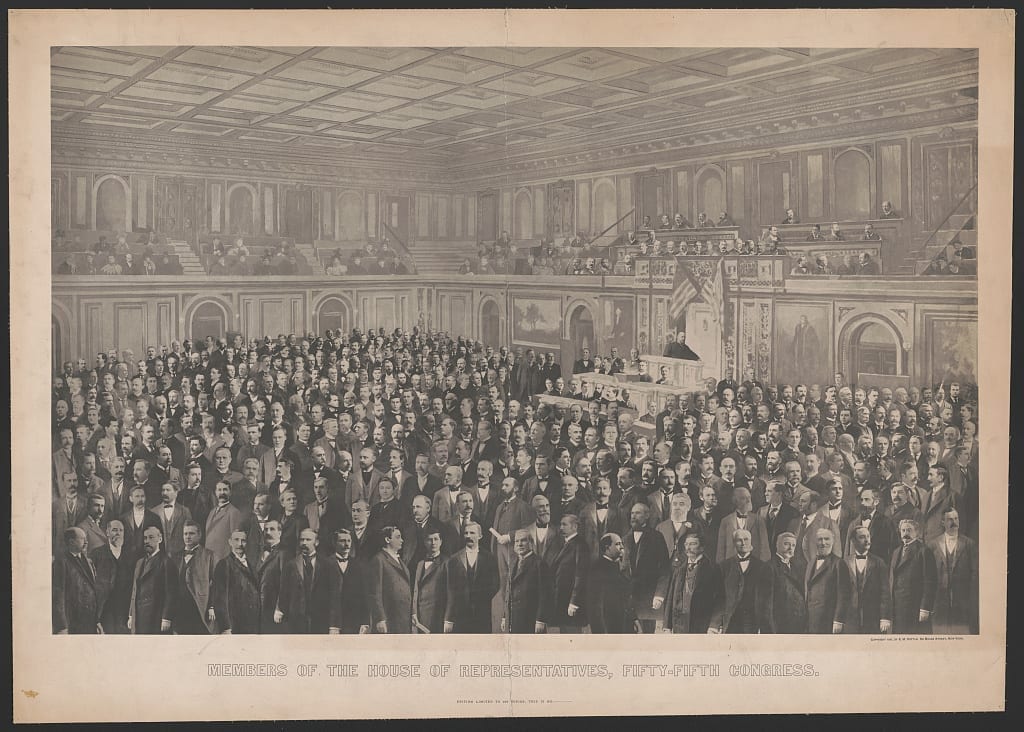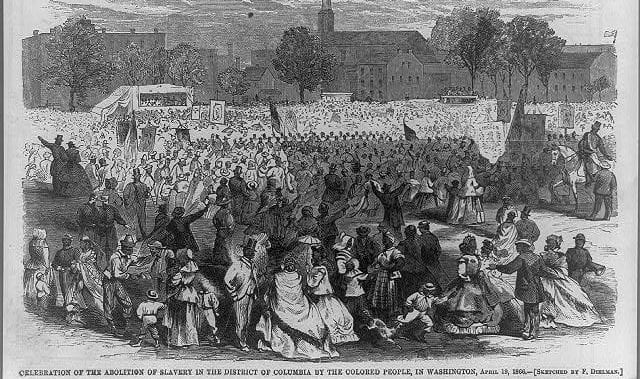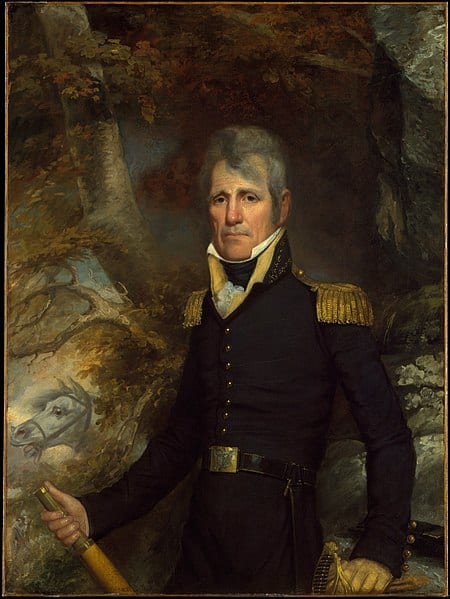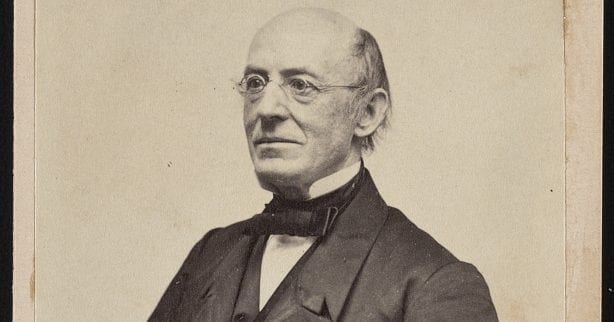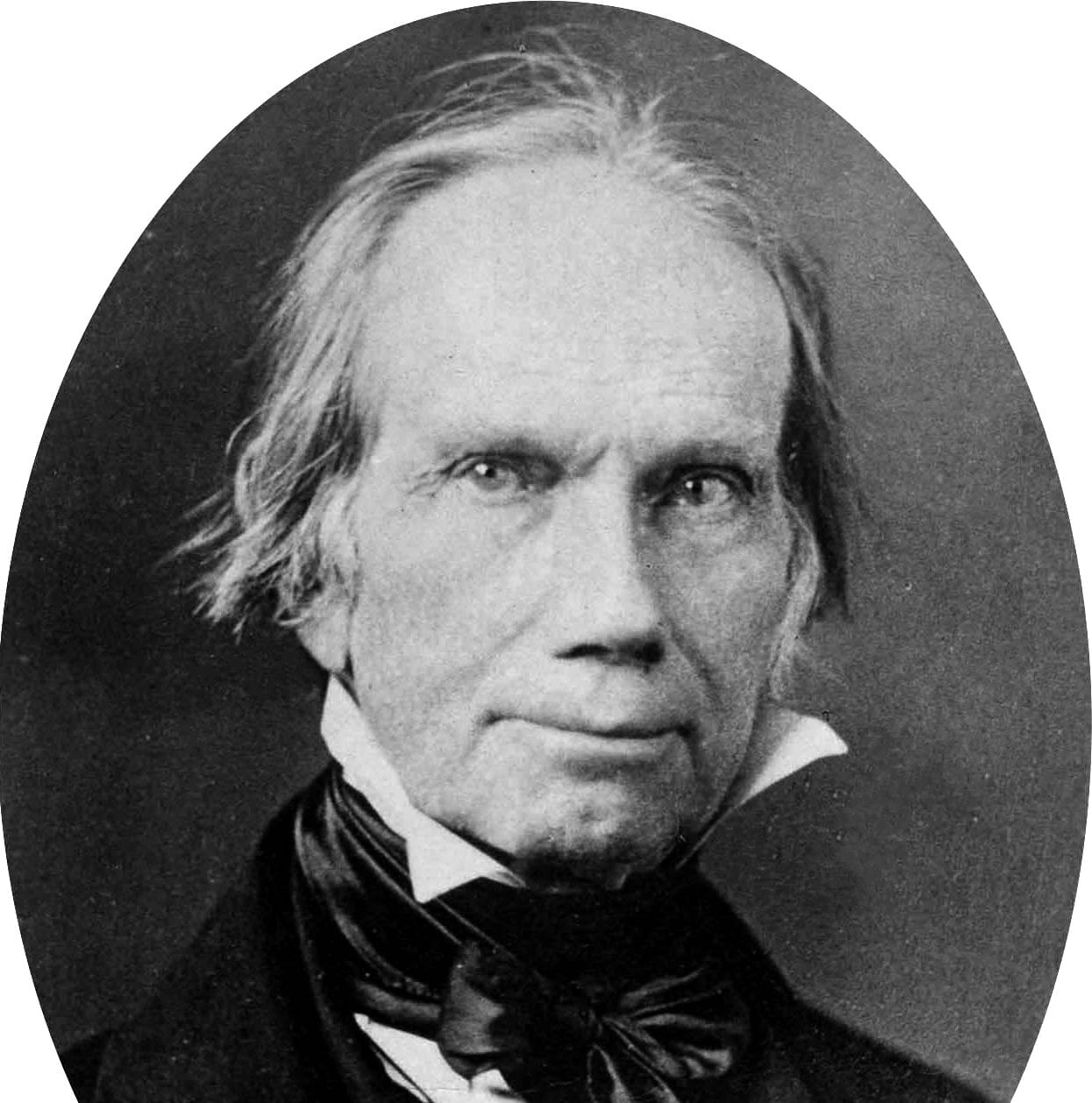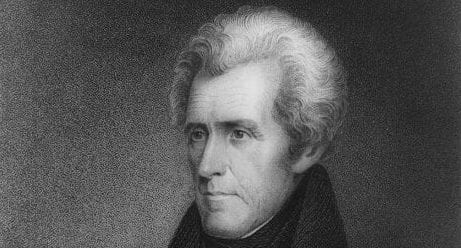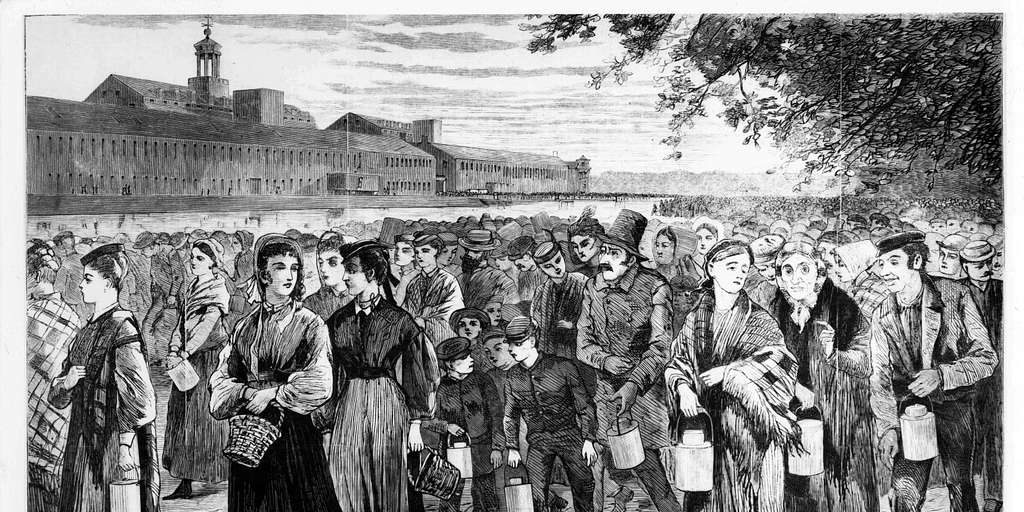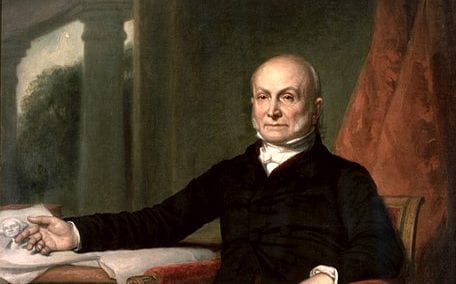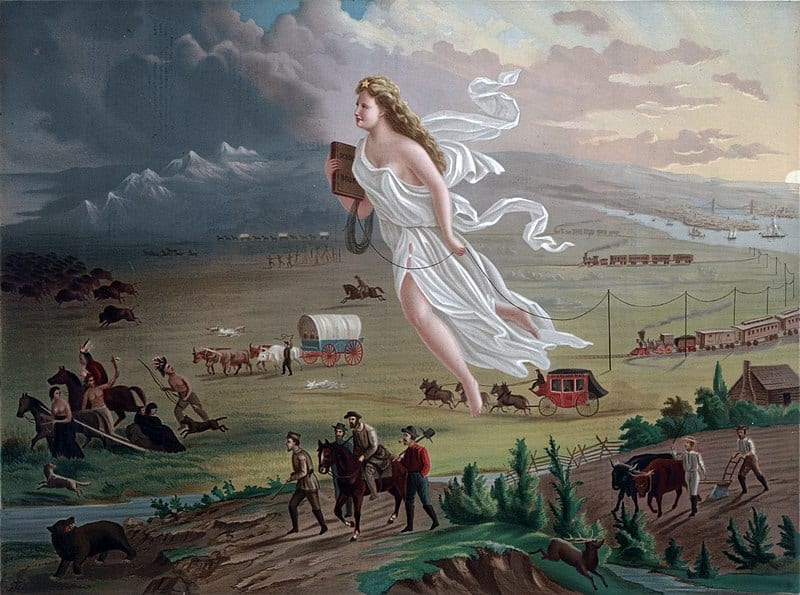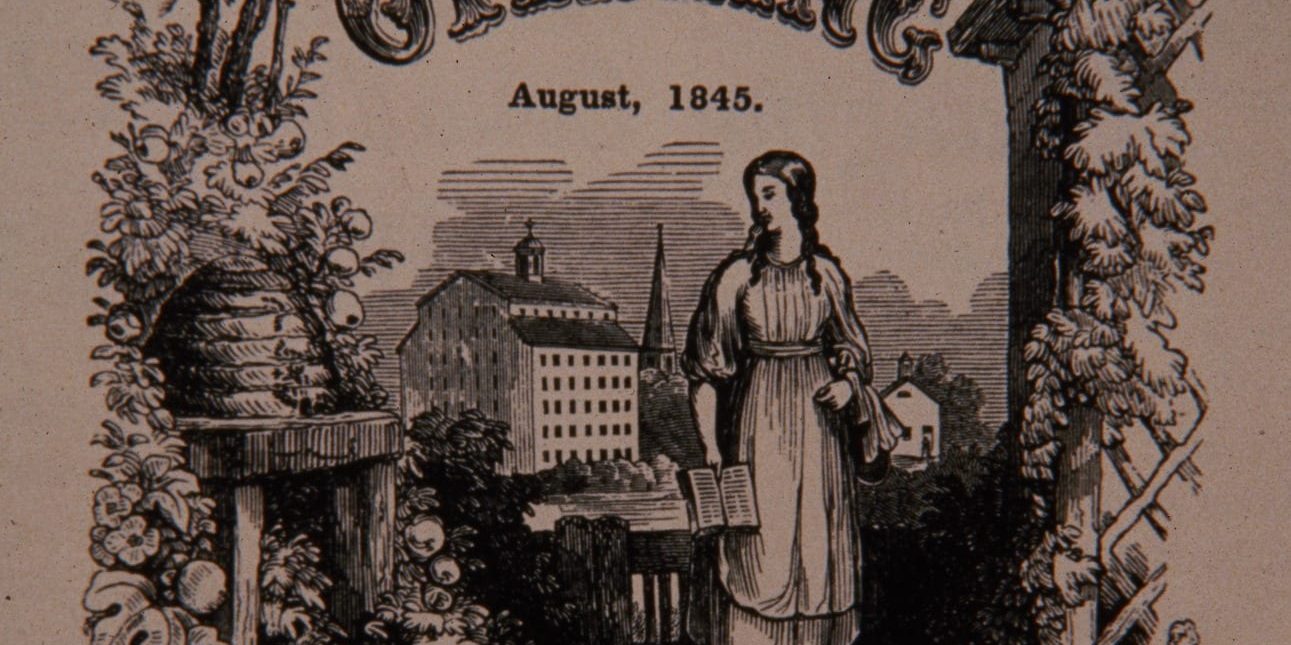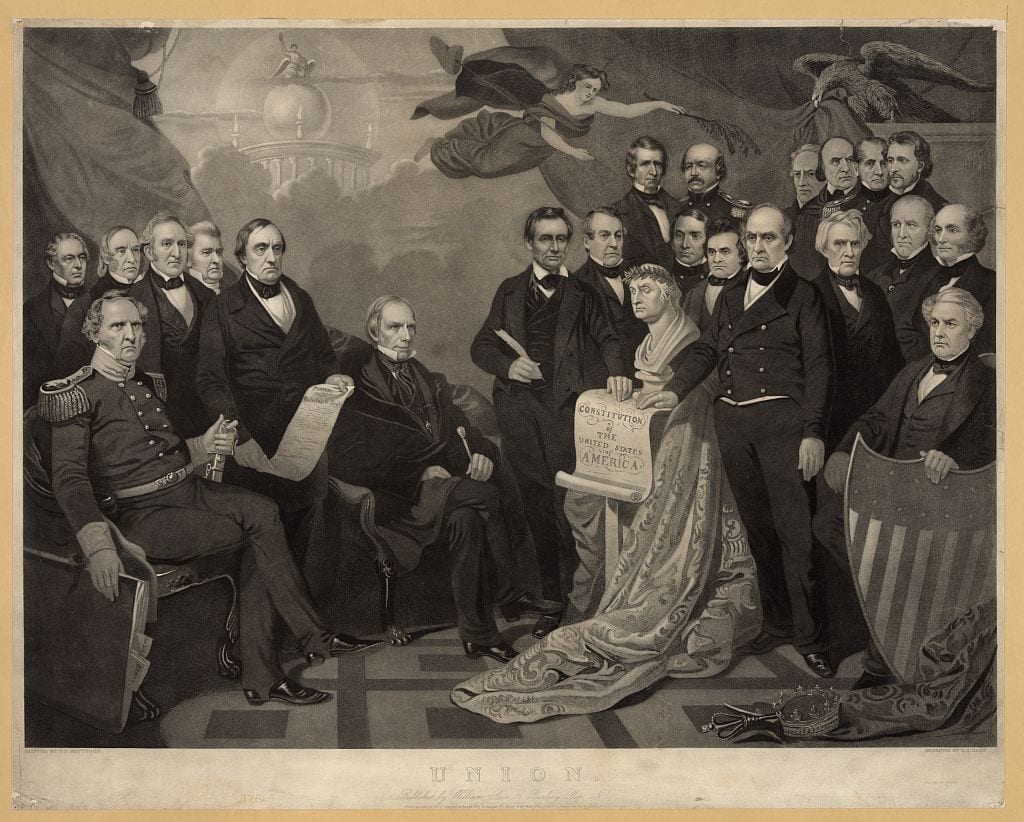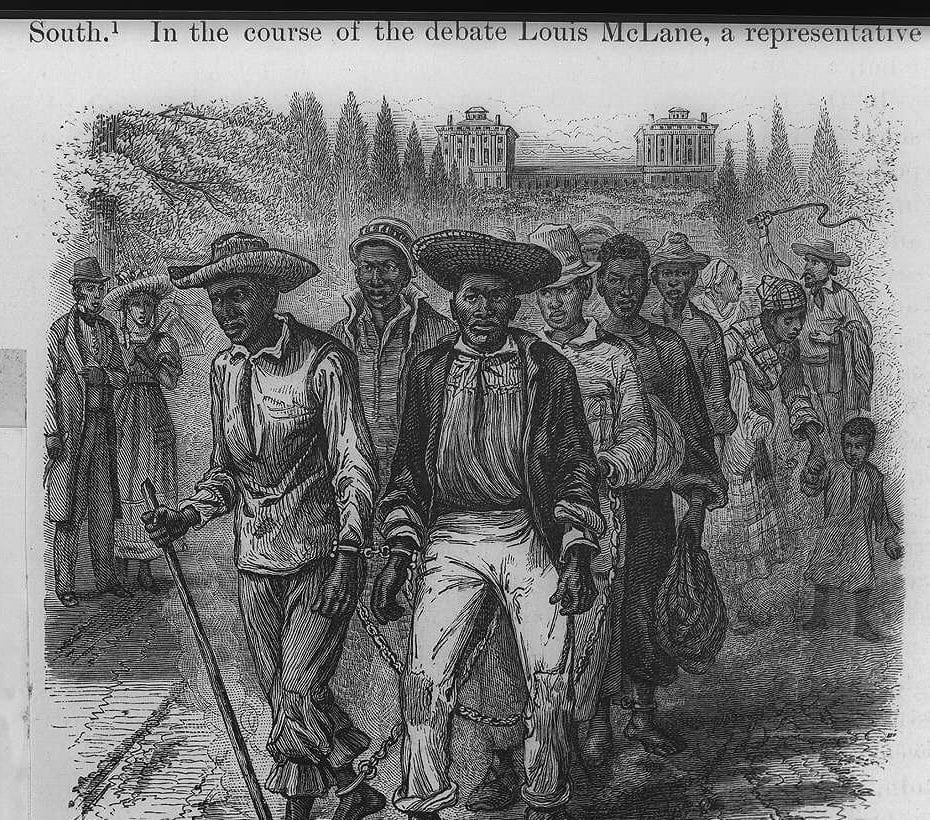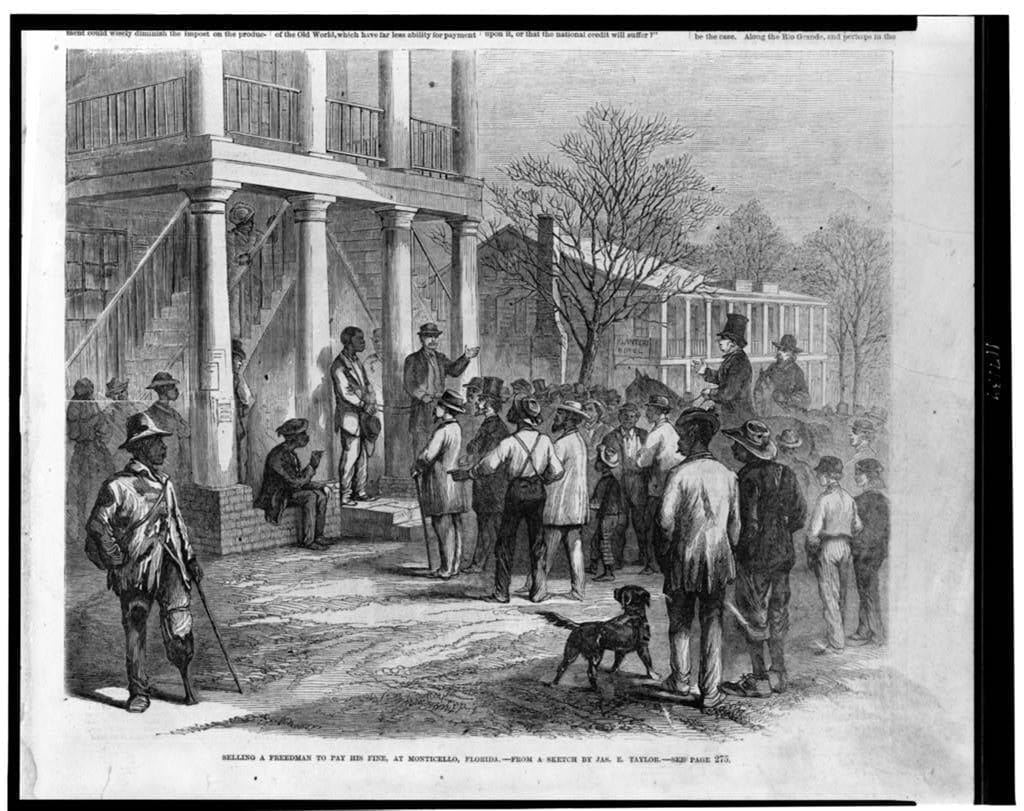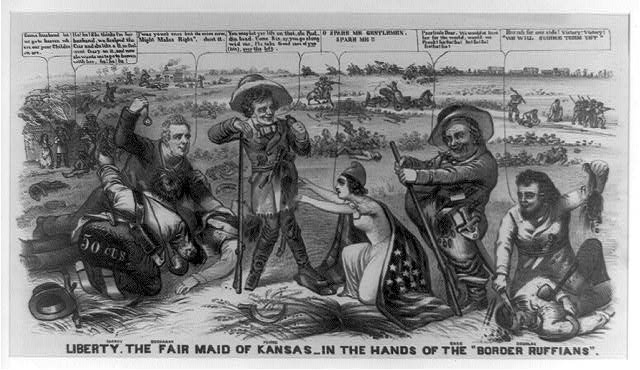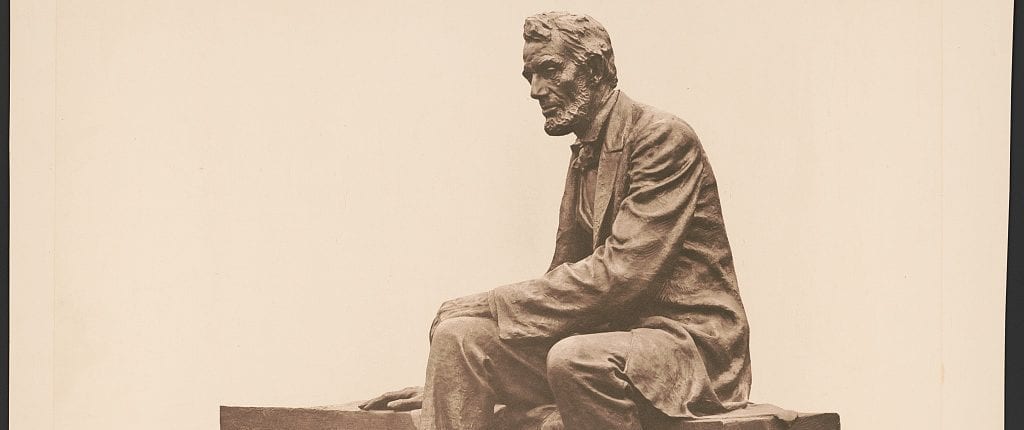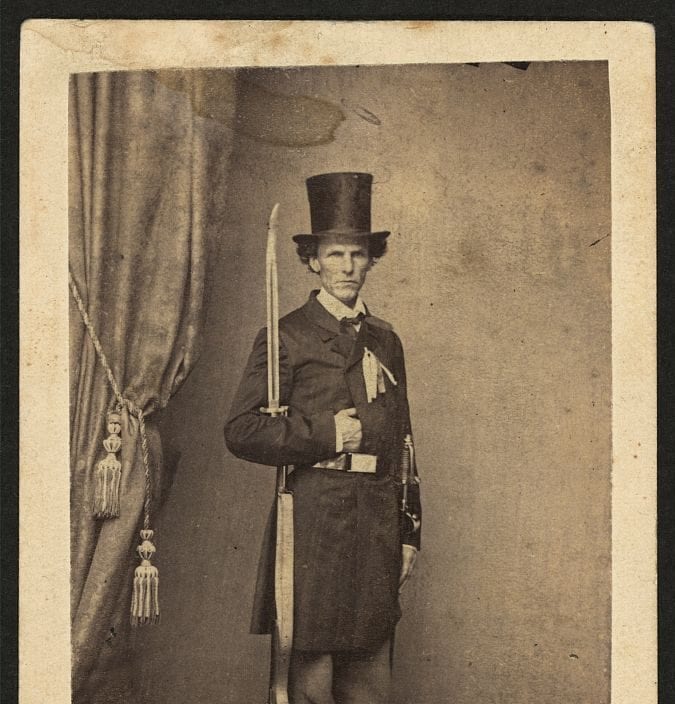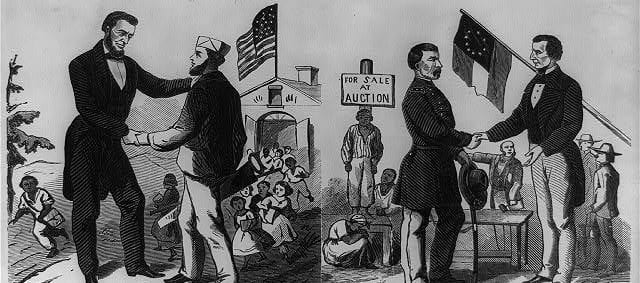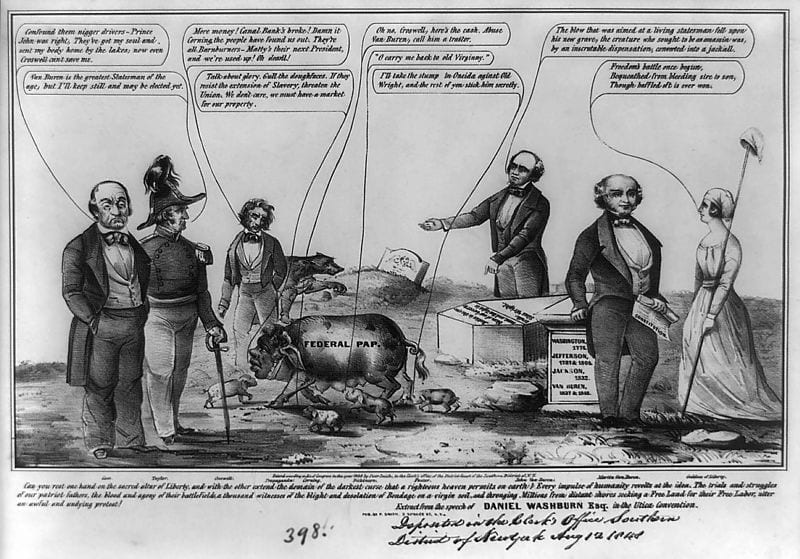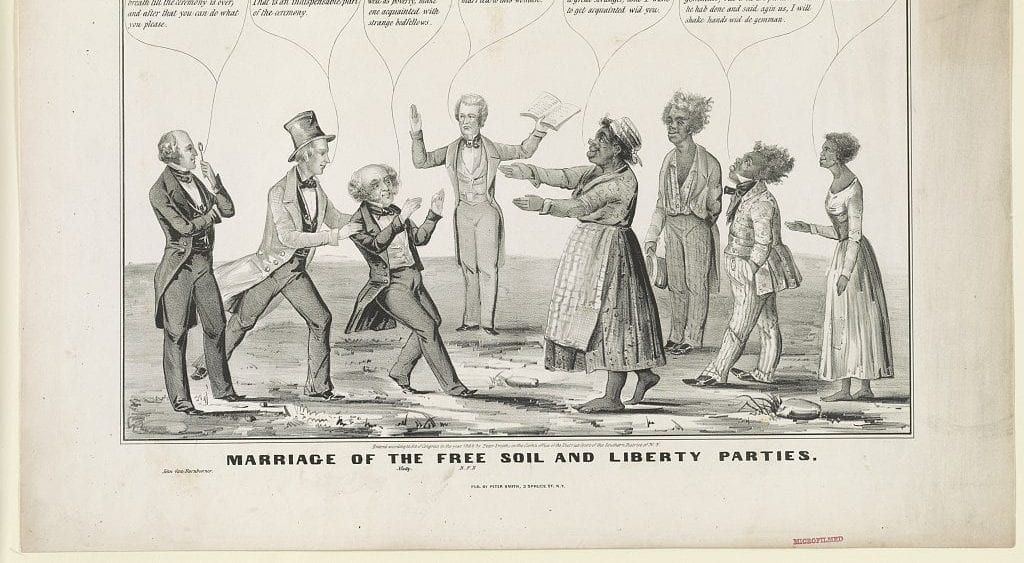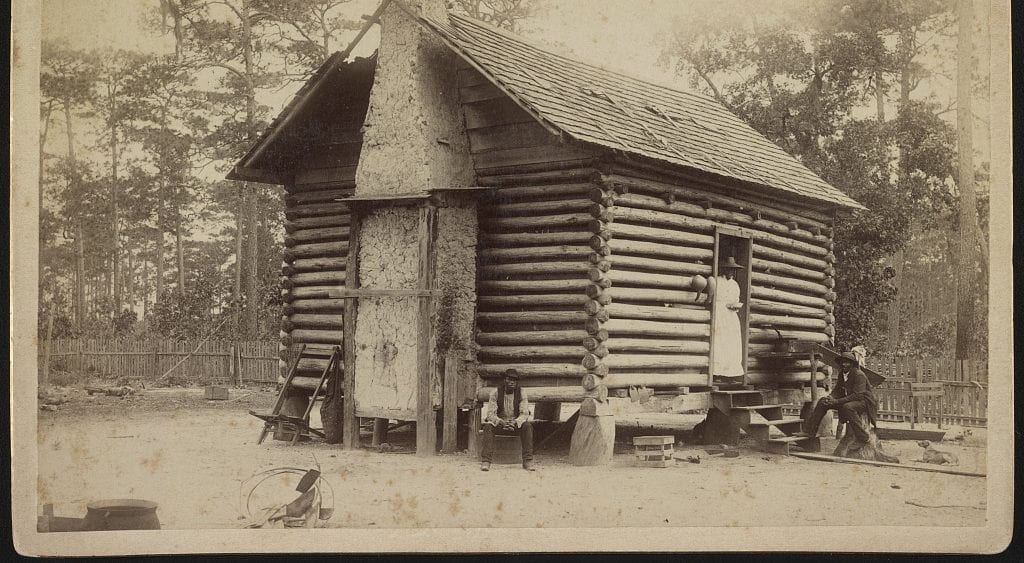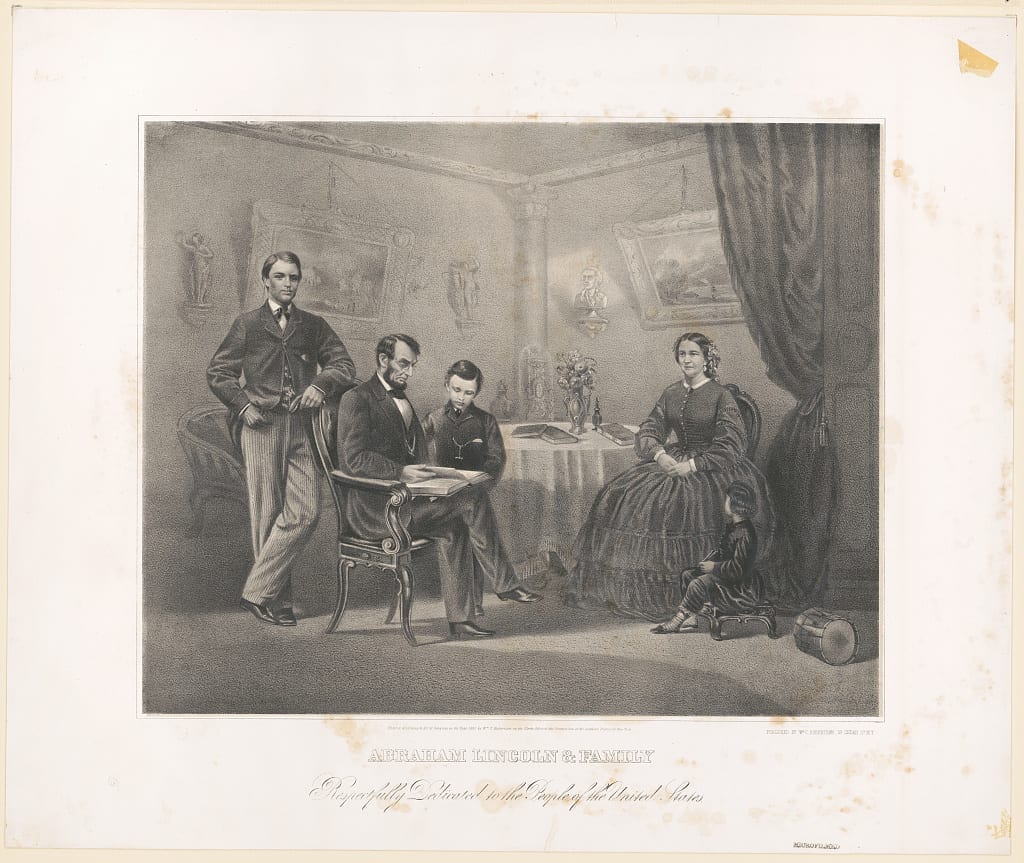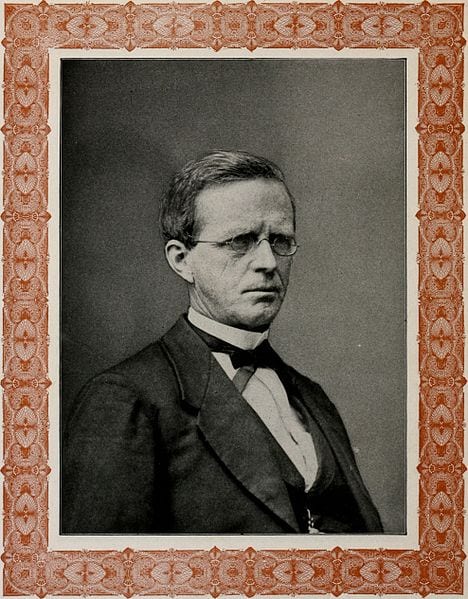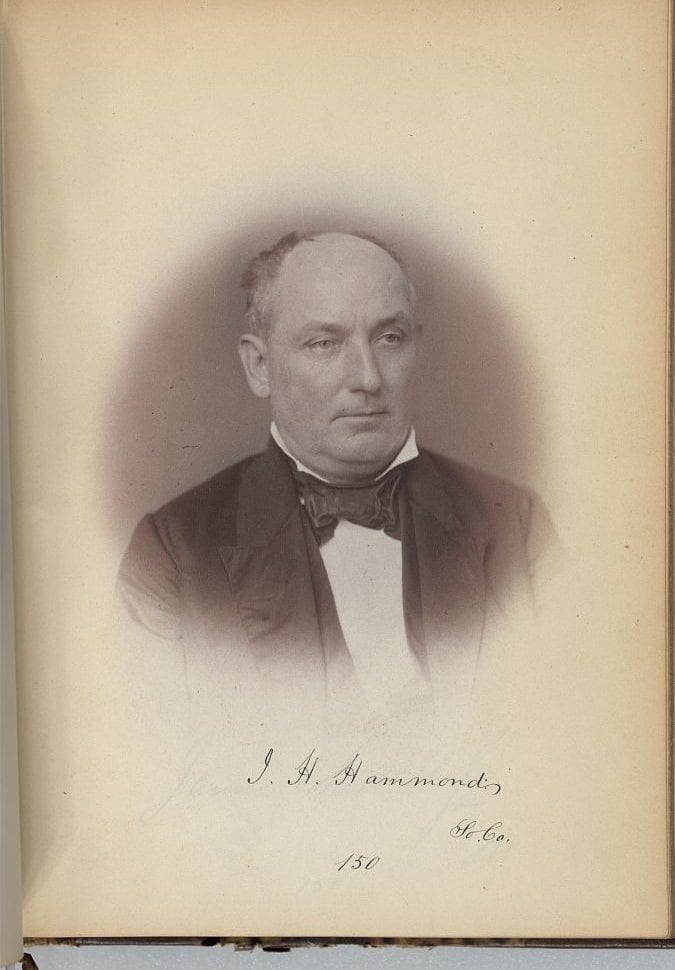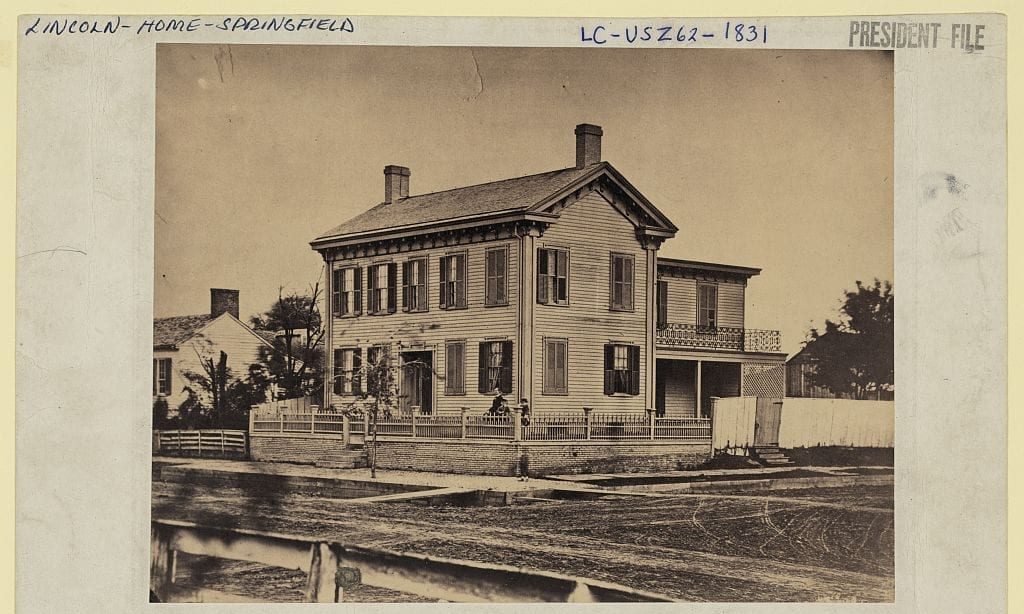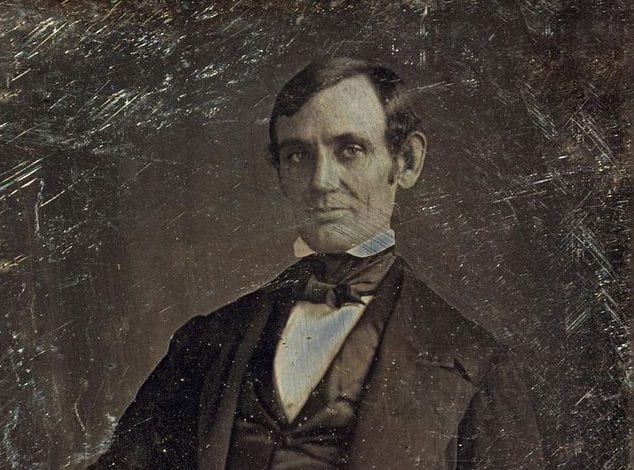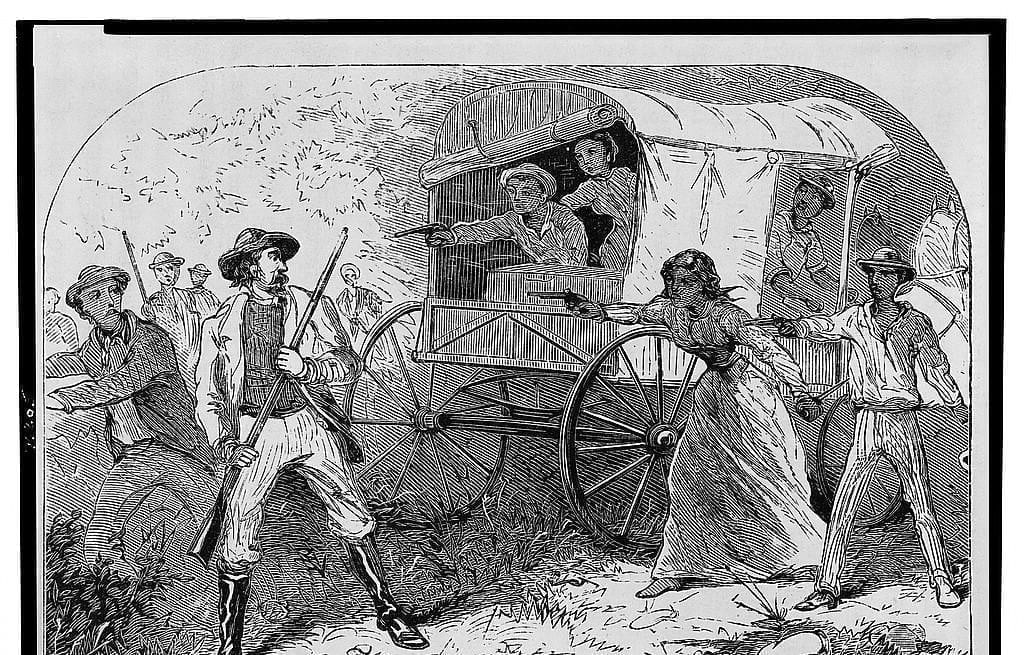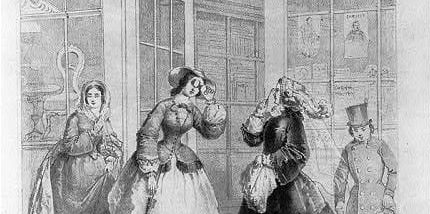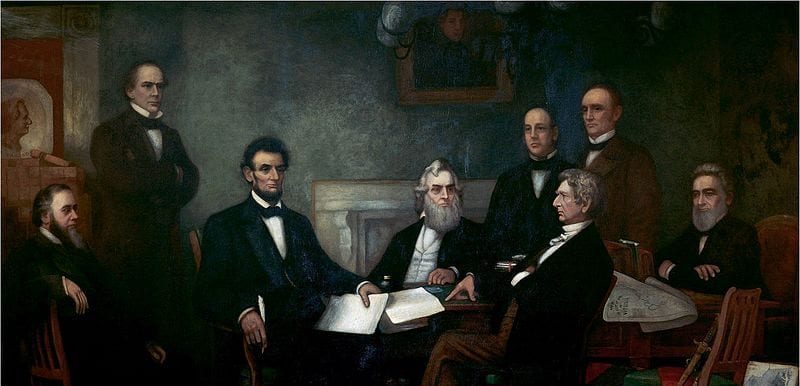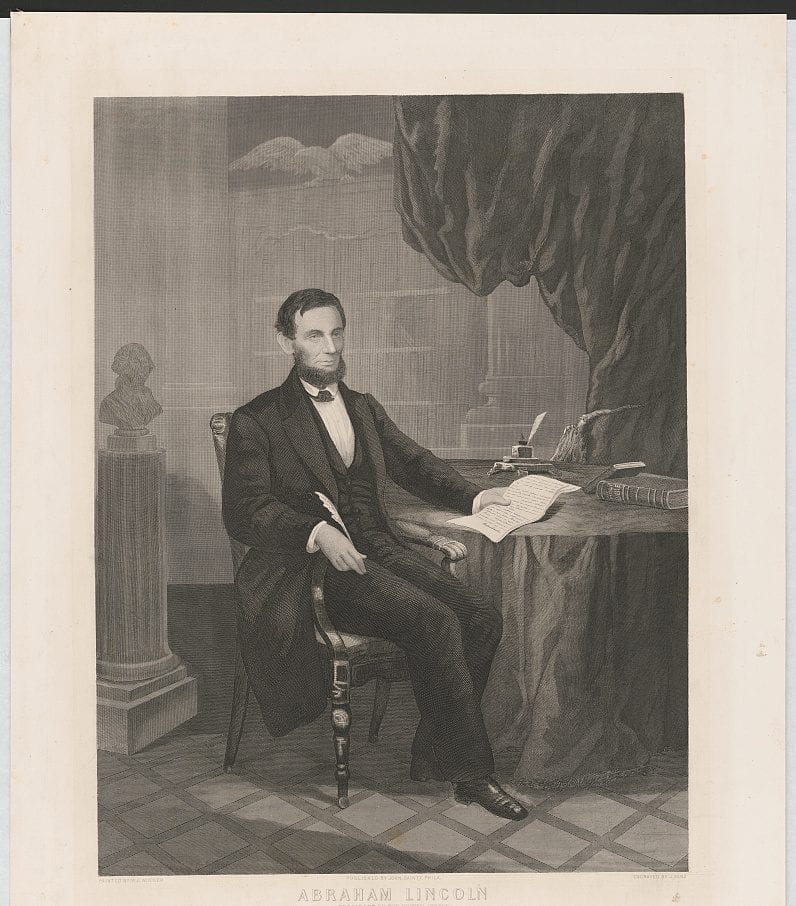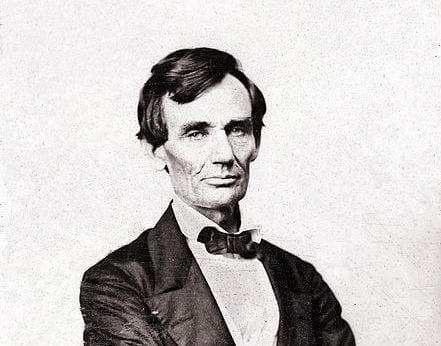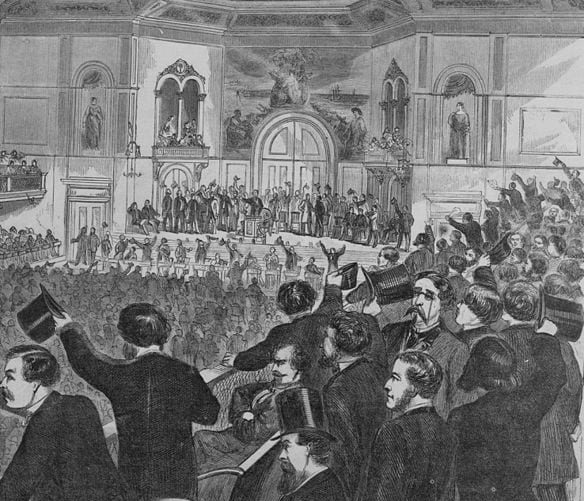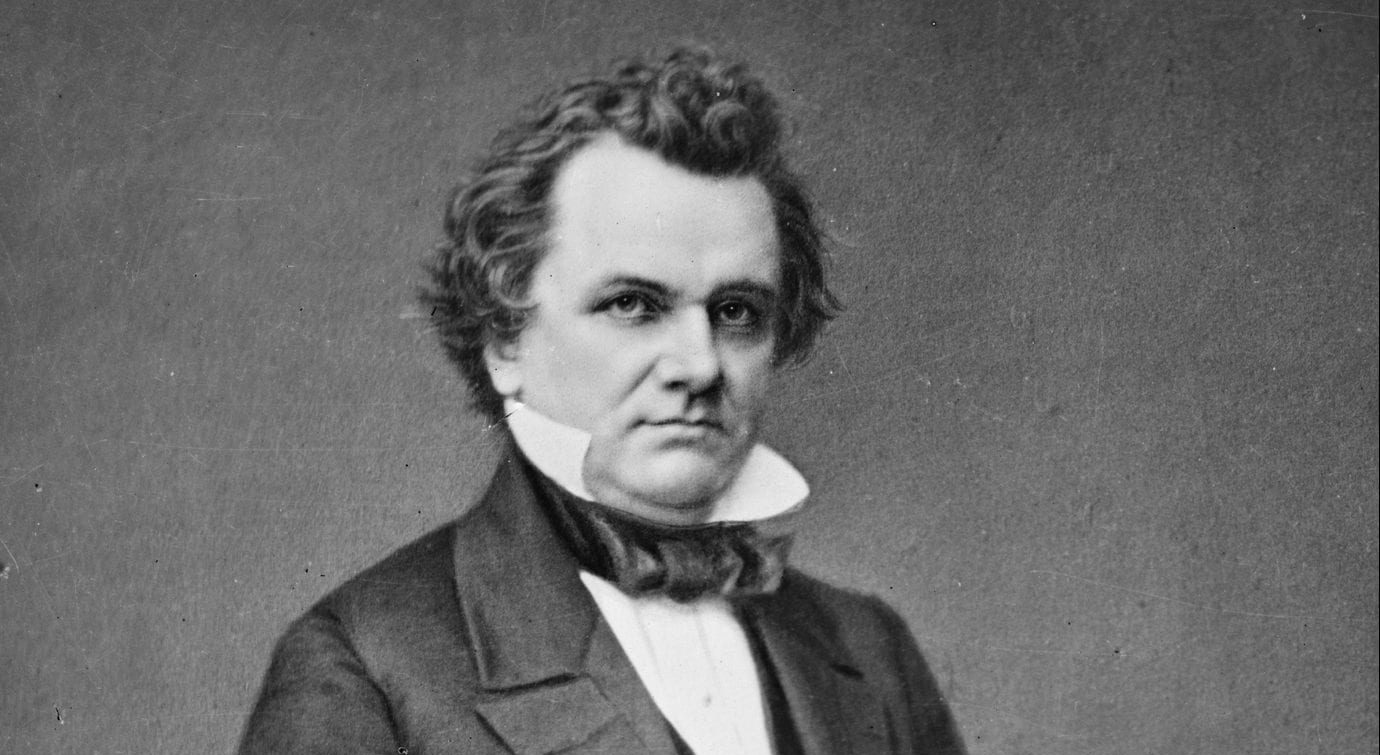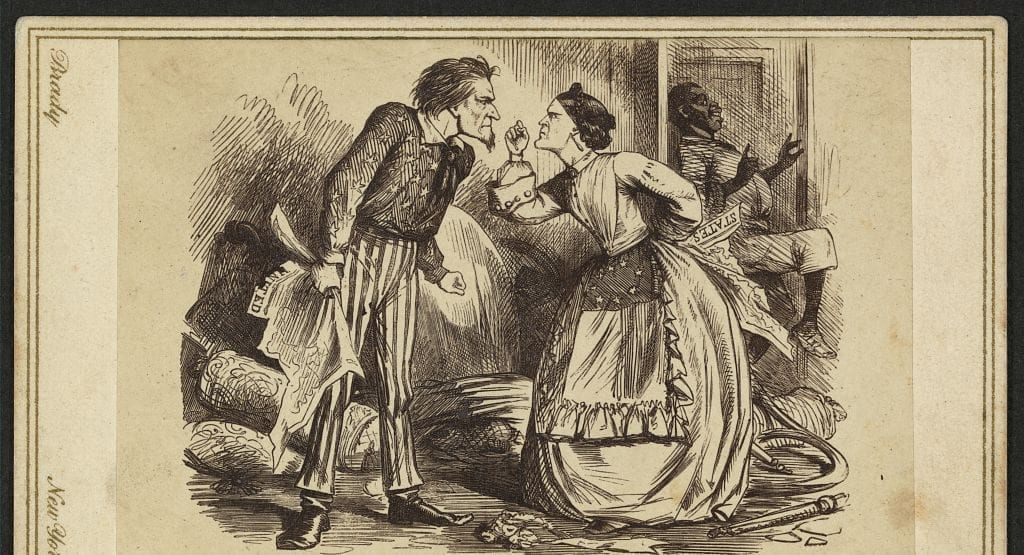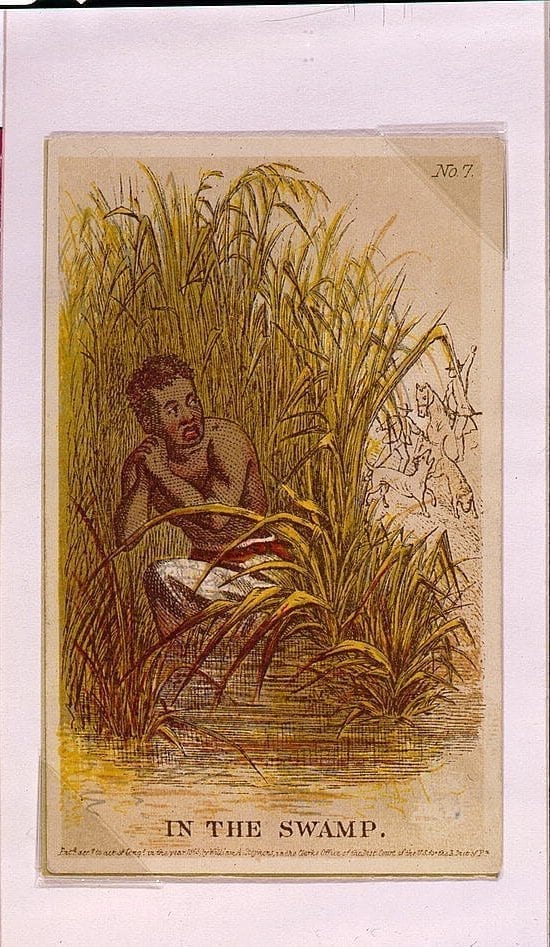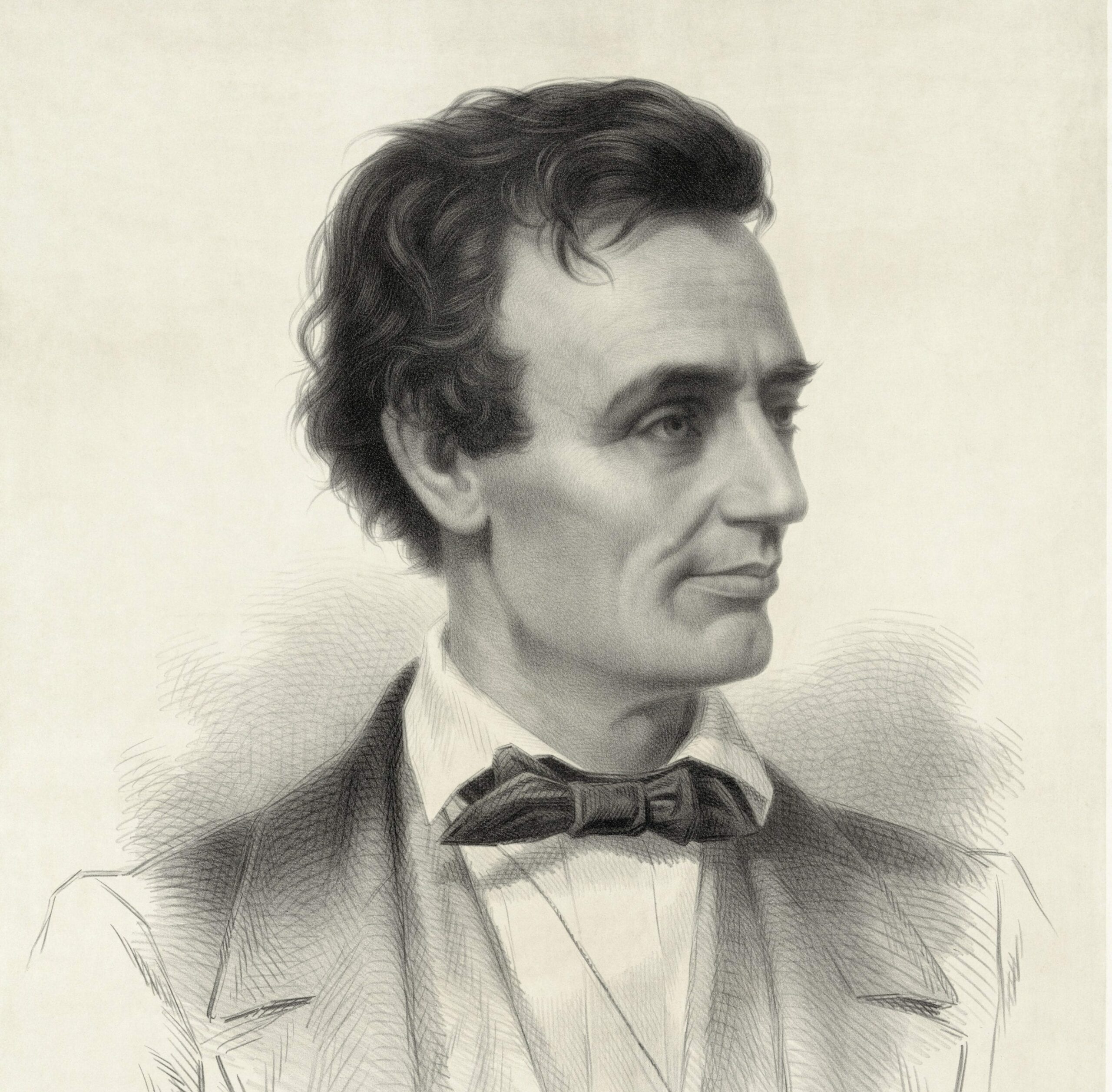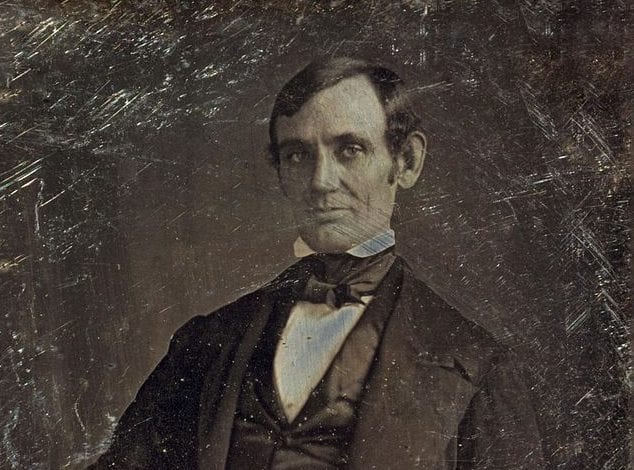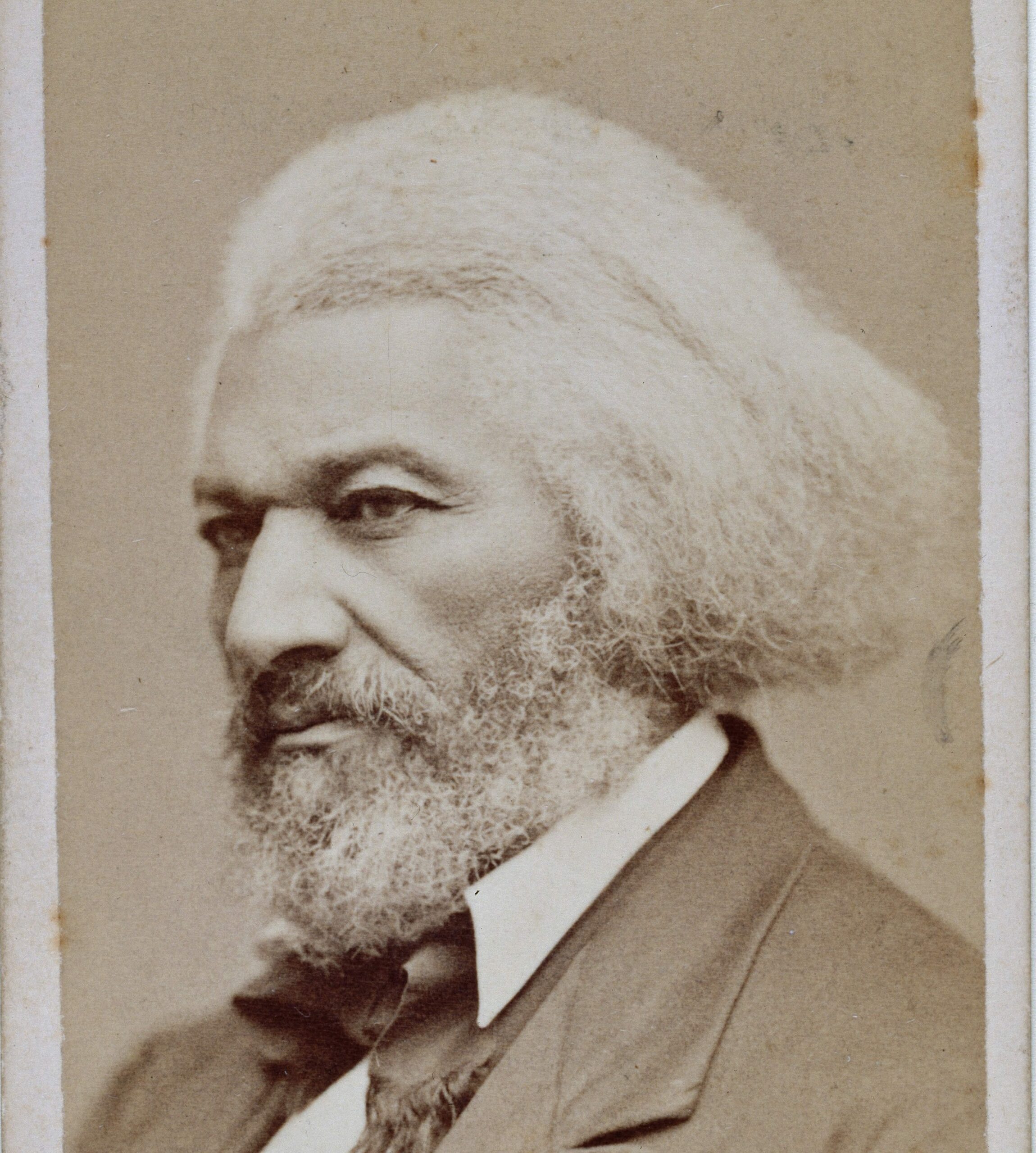
No study questions
No related resources
Introduction
In the early nineteenth century, many “second sons” of slave-holding families (who would not inherit the family plantations) moved west into the Mexican state of Texas, where land was plentiful and well suited for many of the same cash crops as were grown in other parts of the American South. Although these settlers were at first welcomed by the Mexican government, when the country abolished slavery in 1829, they instigated an independence movement that quickly escalated into a war. In 1836, after the Battle of San Jacinto, Mexico recognized Texas as an independent republic; yet tensions remained between the two nations over the disputed territory between the Nueces River and the Rio Grande, some 150 miles to the south.
When the United States agreed to the annexation of Texas in 1845, it also adopted the Rio Grande as the border, leading to a break in diplomatic relations with Mexico and, eventually, to Democratic President James K. Polk’s request for a war declaration in 1847. Polk asserted that the Mexican army had attacked on American soil; skeptical Whigs, including the freshman congressman from Illinois, Abraham Lincoln, questioned the veracity of Polk’s claim. Lincoln and his political compatriots accused Polk of illegitimately escalating a conflict over disputed territory for the sole purpose of extending slave territory. Indeed, Lincoln presented a series of resolutions on the floor of Congress, challenging Polk to identify the very spot where the alleged Mexican attack had occurred and to prove that it was, in fact, on America soil. The “spot resolutions,” as they became known, showcase Lincoln’s famous wit, but with a degree of acerbity that ultimately proved fatal to Lincoln’s career in the House, as Democrats charged him with being unpatriotic, unsupportive of the Army, and even disloyal.
Lincoln’s senior colleague, Henry Clay, also opposed the war publicly, but since his son fought and died in the battle of Vera Cruz, the Democratic press regularly portrayed Clay as two-faced and his opposition as insincere and politically motivated. In “The Great Speech of Clay,” one political cartoon with this trope, Clay’s anti-war audience (to the right) includes Horace Greeley, editor of the New York Tribune, who compares the position of anti-war Whigs with that of the New England Federalists who organized the Hartford Convention. This trope was taken up by at least one member of Congress in a speech haranguing his fellow legislators for their faithlessness to the war effort they had voted to commence only a short time before.
Not all opposition to the war was politically motivated, however: many Northern religious leaders, some of whom were pacifists on principle and some of whom were ardent anti-slavery advocates, freely denounced the war as an act of imperialism and a blatant attempt to increase the territory available to Southern slaveholders. Interestingly, Ulysses S. Grant’s account of the mindset of the troops on the ground in Texas during the conflict supports the latter interpretation (although it is worth noting that the date of Grant’s memoir is significantly after the fact).
Speech of Hon. A[ndrew] Kennedy, of Indiana, on The Mexican War. Delivered in the House of Representatives, December 16, 1846 (Washington: Printed at the Office of Blair and Rives, 1846), 5ff.
What are we, who declared this war, now doing? Here we are in the second week of this short session, denouncing the President for causing an unholy, impious, and vindictive war, and cavilling and carping at the manner in which he has protected the Mexican people who have yielded to the resistless shock of our victorious arms. Oh, shame. The very ashes of our fathers cry out against us! Are we, indeed, so degenerated that we are afraid to meet the responsibility of our own acts, and meanly attempt to throw the responsibility on other shoulders?
There was a time, according to my reading, when a portion of this policy was pursued by those who preceded the gentleman’s school of politics. The Federalists, in 1812, opposed, denounced, and vilified the Government, and those who then administered it, in much the same terms as those used now. But what was their fate? The virtuous indignation of a patriotic people consigned them and their names to the eternal infamy which their conduct so justly merited. And yet their conduct was honorable when compared to the conduct of those who voted for, and now oppose, this war. They opposed the war, from its inception; they voted against its declaration; but you voted for this war – you yourselves voted to plunge your country into what you now call an unholy war: one of infamy, commenced, as you now aver, with a view to conquest. And now you turn round and oppose it, and strain every nerve to convince the world that your own country is wholly in the wrong. Suppose it were possible for you to succeed, what then? Why, you have disgraced your Government, and yourselves with it! Is this the employment of patriots? But do gentlemen believe what they say, in relation to the iniquity of this war? I submit that it is impossible for any well-informed man honestly to take that view of the subject. He must know better. The causes which produced this war, and the justice of our cause, have been so fully and powerfully set forth by the President in his annual message, that shall not be guilty of the egregious folly of trying to render it more plain. But I ask all those who have not read that document, and who entertain any doubt on this subject, to read it. The evidence is clear, powerful, and conclusive. This Government had borne outrages, indignities, and insults, from that Government, longer than she would have done from any other Government upon earth.
Had England or France, or any other respectable Government, treated us with half the indignity, outrage, and insult, manifested by Mexico, long since would the honor of the country have been vindicated. But Mexico was a feeble Government, distracted by internal factions and feuds; beside, it approximated, to some extent, to a republican form, and excited our sympathies. Hence it was that this Government bore with her outrages and insults until forbearance ceased to be a virtue. Mexico took advantage of this forbearance, and repeated her injuries, and, as if for the purpose of filling the cup of outrages to overflowing, she finally crossed our territorial lines, and attacked our armies and citizens upon our own soil. Thus was our Government driven to the wall. National dishonor or a prompt punishment of the offender was the only alternative.
But, I repeat, do the gentlemen on the opposite side doubt the justness of our cause? It is my candid opinion that they do not. The lameness of their assaults upon the President shows that they do not believe their own assertions. First, they complain that the President moved our army to the left bank of the Rio Grande contrary to law, and thereby brought on the war. A moment’s investigation will prove the absurdity of their position. It was not the President, but Congress, which made the Rio Grande our boundary line. By the annexation of Texas we bound the President to defend that as our territory. The State of Texas claimed the territory to that line. Under that claim we annexed her to the Union.
But as we were determined to give to Mexico no just cause of complaint against us, and as she claimed territory on this side of the Rio Grande, we stipulated with Texas that after annexation we should have the right to settle all questions of boundary with the Mexican Government. So soon as Texas was annexed, the President informed Mexico of this power, now resting in the United States, and of his willingness to settle the question by negotiation. She refused to negotiate, but declared she would settle it by the sword. In the meantime, this very Congress passed a law establishing a collection district between the Nueces River and the Rio Grande, and directed the President to appoint a custom-house officer to reside in that country. By this act, on our part, we said to the President, in the strongest possible language, “This is our country, and it is your duty to see that our jurisdiction is maintained over it.” The Mexican Government, in the meantime, was concentrating a strong force on the south bank of the Rio Grande, and constantly fulminating her threats of slaughter and reconquest even to the Sabine. What, in the name of all that is sacred, was the President to do but exactly what he did do – move our army to the extreme limit of our boundary, and there await the onslaught, if Mexico chose to make it? If he had done otherwise, he would have been justly censurable; and in that event I make no doubt that the very men who are now denouncing him for having defended our soil, would have clamored in this House for an impeachment against him for having suffered its pollution by the hostile tread of a foreign foe. Foiled at this point, the next complaint is, that the President has conquered a large portion of Mexico and established civil governments therein. Well, where does the shoe pinch here, gentlemen? Are you horrified at the success of the American arms? I verily believe that many of you would have been better pleased if the results of this war had been the defeat of our armies and a loss of American territory, and more especially if it had secured the defeat of the dominant party. Or are your feelings of humanity outraged that the President has restrained the stern mandate of the military law in favor of the civil? Did you desire him to stain his character with cruelty, which the emergencies of the army did not demand, that you might have more cause to denounce the action of your own Government? In this again you are disappointed. All this your actions authorized us to charge, but I will not believe you as unpatriotic as your conduct imports. The truth probably is, that the actions of your Government you would have heartily approved, if the same acts had been performed by a President of your own choice. But such is your rooted and settled hostility to democratic measures, that you are willing to hazard the cause of your country, in the hope that you may render a democratic President unpopular, and thereby secure your own elevation to power. If this be your object – and it is the most charitable one which I can impute to you – I submit it to the country whether your elevation may not cost more than your services may be worth.
Since the commencement of this war there has been, in and out of this House, many and pathetic appeals by those who oppose it to the sympathy of the moral and religious portion of our people against the horrors necessarily resulting from a state of war. I profess to be as much opposed to a useless and unnecessary war as the most devout Christian can be. I believe war should never be resorted to when honor can be preserved without it. And I now arraign before the bar of public opinion those selfsame men, as being the sole cause of this war. I hold them responsible for every drop of blood which has been, or will be, shed in this contest. Does any man in his senses believe that Mexico would have commenced this war, if she had not been induced to believe, by the course of the opponents of the Executive, that this Government would not be suffered to chastise them for their injustice and insolence? . . . . By this have you opened the veins and destroyed the lives of many of our bravest soldiers! And you will deceive them still further. Are they not now publishing in their papers that there is a probability of a revolution in the north of this Republic – that the New England States would secede from the Union – and other such nonsense? Will they ever treat with us whilst they believe this? And what is to be the result? Will you fulfil the hopes which your conduct has inspired? Never! You cannot, if you would, and you would not, if you could, make your Government recede. No, an honorable peace, with indemnity for the past and security for the future, or an utter annihilation of the Mexican Government, will be the end of this war. . . .
There was one allusion made by the gentleman from Tennessee, which rather horrified than surprised me. He, with something like a sneer, referred to what he seemed to hope would be the ultimate result of the acquisition of Mexican territory. He said the Northern Democrats would never suffer any other slave territory to exist in this, country, and that the Southern Democrats would not suffer any free States to exist west of Texas. And he seemed to gloat over the possible dissolution of the Union. Had this come from a northern Abolitionist, I could have accounted for and excused it. But coming from the quarter it did, it seemed like the patricide inviting the onslaught upon the devoted heads of his defenseless parents. . . . This was done avowedly for the purpose of securing, if possible, a bad feeling towards the President. And does the gentleman really think so poorly of our patriotism as to suppose that he could thereby induce us to quarrel with the President whilst he is engaged in the conduct of a foreign war? I feel myself under no obligation to defend the President in all his acts, nor does he need my defense. But if I had any little pique . . . I would wait until my country was extricated from this foreign war before I would wrangle with its Executive.
Such is the course duty points out to me, and I will follow it. And in conclusion, I say to the gentlemen on the other side, go on, if you choose, in this constant denunciation of your country’s cause; the end of it all will be, either you will render your constituents wholly mercenary and unpatriotic, which God in his mercy forefend; or, which is more likely, you will sink yourselves and your very names to that infamy which always overtakes those who are capable of sacrificing their country to self, and sinking the patriot into the partisan.

Conversation-based seminars for collegial PD, one-day and multi-day seminars, graduate credit seminars (MA degree), online and in-person.














